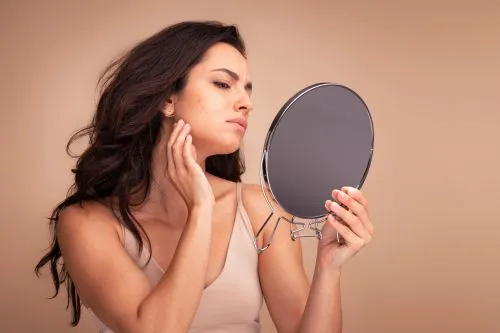
“Research indicates that CBD helps regulate the body’s Sleep-Wake cycle as we’ll as providing a reduction in anxiety symptoms which suggests it could have a long-term role in helping with a variety of sleep disorders.”
Professor Mike Barnes
Consultant Neurologist
Introduction to Sleep and Its Importance
Sleep is one of the most vital processes for maintaining our physical and mental health. It is during sleep that the body repairs itself, consolidates memories, and regulates hormonal functions. Yet, despite its importance, sleep problems affect millions worldwide. According to the World Sleep Society, nearly 45% of the global population experiences sleep disorders, making it one of the most prevalent health concerns today.
Whether it’s difficulty falling asleep, waking up too often during the night, or feeling unrefreshed in the morning, sleep issues can significantly affect one’s quality of life.

SLEEP statistics
- In the UK, 1 in 10 people are only getting 2-4 hours of sleep per night
- 35–44-year-olds get the least sleep (of which almost 50% only getting 5-6 hours per night)
- Only 33% of adults get the recommended 7-8 hours of sleep per night
- As many as 16 million UK adults* are suffering from sleepless nights as a third (31%) say they have insomnia
- In the UK, 207,000 working days are lost each year due to insufficient sleep
Sources: Nuffield Health’s 2022, ‘Healthier Nation Index’ *Aviva Wellbeing Report” -
What Causes Sleep Problems?
01
Stress and Anxiety:
Stress and anxiety are leading causes of sleep disturbances. Whether it’s work deadlines, personal conflicts, or financial worries, a racing mind can prevent the body from relaxing enough to fall asleep. When stress hormones like cortisol remain elevated, they disrupt the natural sleep-wake cycle, leading to insomnia or restless sleep.
02
Chronic Pain:
Pain, whether due to an injury or a chronic condition like arthritis, fibromyalgia, or migraines, can be a significant barrier to achieving quality sleep. Pain not only delays the onset of sleep but also causes frequent awakenings throughout the night. Over time, poor sleep can exacerbate pain sensitivity, creating a vicious cycle.
03
Irregular Sleep Patterns:
Modern lifestyles have introduced disruptions to our natural circadian rhythms, the internal clock that governs when we sleep and wake. Shift workers, for example, often struggle with maintaining consistent sleep schedules, leading to sleep disorders like shift work sleep disorder.
04
Medical Conditions:
Medical issues such as sleep apnoea, restless leg syndrome, and periodic limb movement disorder can severely affect sleep quality. In the UK, around 10 million people are estimated to have sleep apnea, with up to 4 million experiencing moderate or severe cases.
05
Lifestyle Factors:
Poor lifestyle choices also con¬tribute to sleep problems. Consuming caffeine or nicotine close to bedtime, excessive screen time, and irregular meal timings can all interfere with the ability to sleep. Additionally, lack of physical activity or over stimulation in the hours leading up to sleep can delay the body’s natural transition into rest.
The Limitations of Traditional SLEEP Treatments
Despite the availability of numerous treatment options, many people continue to struggle with sleep problems. Over-the-counter and prescription medications often address the symptoms of insomnia but not the root causes, leading to dependency and other side effects. Similarly, lifestyle adjustments, while beneficial, require consistency and time to show results, which can be challenging for individuals with hectic schedules or severe sleep disorders.
Introduction to CBD and Sleep
Cannabidiol, or CBD, is a naturally occurring compound found in the hemp plant (Cannabis Sativa). Unlike tetrahydrocannabinol (THC), another compound found in cannabis plants, CBD does not produce a psychoactive effect, which means it does not cause a “high”.
CBD has been gaining popularity in recent years as a food supplement and ingredient in topical products such as creams and balms. In parallel to this, there has been a significant increase in medical research studies and clinic trials looking at the therapeutic effects of CBD.
How Does CBD work?
To understand this, it’s important to first have a basic understanding of the endocannabinoid system (ECS), which is a complex cell-signalling system found in the human body. The ECS is involved in regulating a variety of psychological and cognitive processes, including pain sensation, appetite, mood, and sleep.
CBD interacts with the body’s endocannabinoid system (and other systems) by positively affecting the cannabinoid receptors, primarily CB1 and CB2 receptors. It also interacts with other receptors.
CBD also works in other ways. Current research suggests CBD suppresses the breakdown of anandamide, a naturally occurring cannabinoid in the body that is responsible for activating the CB1 and CB2 receptors.
By doing this, CBD indirectly increases endocannabinoid levels within the body, suggesting it may enable them to continue supporting the function of the ECS, and contributing to the maintenance of a balanced and healthy internal state. This interaction allows CBD to enhance the body’s ability to improve sleep quality and reduce anxiety without causing a “high.”
Endocannabinoids are produced by the body when it needs the ECS to take action (such as manage anxiety and sleep) and research suggests CBD enhances this process. By lowering anxiety and promoting relaxation, CBD helps signal to the body that it is time to wind down, ultimately facilitating the transition into a restful night’s sleep.
The ECS is involved in regulating a variety of psychological and cognitive processes, including pain sensation, appetite, mood, and sleep.
CBD interacts with the body’s endocannabinoid system (and other systems) by positively affecting the cannabinoid receptors, primarily CB1 and CB2 receptors.
Some quick facts about CBD
- CBD is legal in the UK
- Regulated by the FSA
- It comes from industrial hemp not cannabis plants
- Oldest recorded medicine
- CBD is non-addictive
- CBD is relative safe (WHO report)


There are currently 34 different clinical trials of cbd (cannabidiol) being undertaken in Europe. Source: EU Clinical Trials Register
https://www.clinicaltrialsregister.eu
Research and Evidence on CBD for Sleep
Research on CBD and sleep disorders such as insomnia is still in the early stages, but initial findings are promising. Some key studies include: A 2023 research study (Ranum RM. et al., 2023) published in The National Library of Medicine showed that CBD might help with insomnia. They reviewed 34 studies where daily CBD was given. Of these, 4 of 7 studies (studies with significant data) reported a general improvement in insomnia outcomes. They concluded CBD alone may be beneficial in alleviating the symptoms of insomnia. Nevertheless, future research assessing CBDs effectiveness in population of patients specifically with insomnia utilising validated subjective and objective measures is necessary.
A 2019 research study (Shannon S et al, 2019) published in the The National Library of Medicine showed when taking CBD, in a group of 72 adults, sleep scores improved in 66.7% of patients in the first month but fluctuated over time.
Summary
While still in its early stages, research on CBD and sleep disorders has proved promising. Anxiety is considered to have the greatest impact on normal sleep patterns and CBD has been shown through research to help manage the bodies anxiety levels. Combined with the ECS’s role in regulating sleep-wake cycles, with more research, CBD may play a recognized role in promoting better sleep.
Professor Mike Barnes
Latest Research and clinical trials on cbd and SLEEP
Use of Cannabidiol in the Management of Insomnia: A Systematic Review.
Ranum RM, Whipple MO, Croghan I, Bauer B, Toussaint LL, Vincent -2022
Cannabidiol in Anxiety and Sleep: A Large Case Series
Scott Shannon , Nicole Lewis, Heather Lee , Shannon Hughes - 2019
















